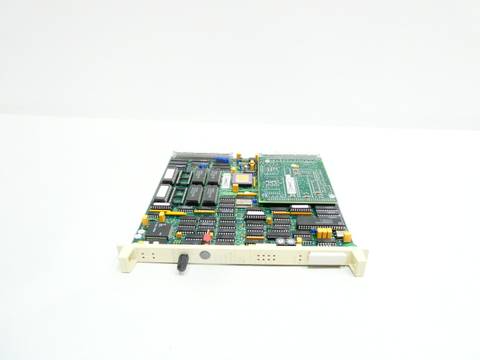
ABB AW600068: A Key Component in Industrial Automation and Renewable Energy
Introduction
This is the default backup site based on the primary configuration. In the rapidly evolving landscape of industrial automation, the ABB AW600068 stands out as a crucial component that enhances the efficiency, safety, and reliability of electrical systems. Understanding its technical specifications, particularly its compliance with IEC60947-2 standards, is essential for professionals in electrical engineering and related fields.
Importance of Electrical Engineering
Electrical engineering plays a pivotal role in the design, development, and maintenance of electrical systems. It is the backbone of modern technology, influencing industries from manufacturing to renewable energy. In industrial automation, effective electrical engineering ensures optimized performance, energy efficiency, and safety.
The ABB AW600068 is a testament to this principle, providing robust solutions that meet the demanding requirements of contemporary industrial applications. Its design and functionality align with the best practices in electrical engineering, making it an invaluable asset for engineers and technicians alike.
Technical Specifications: IEC60947-2
The ABB AW600068 adheres to the IEC60947-2 standard, which governs low-voltage switchgear and controlgear. This standard is critical for ensuring safety, reliability, and performance in electrical installations. Here are some key technical specifications of the ABB AW600068:
- Rated Operational Voltage: Up to 600V AC
- Rated Current: Typically available in various ratings to suit different applications
- Short-Circuit Protection: Designed to handle short-circuit conditions effectively
- Insulation Resistance: High insulation resistance to prevent electrical leakage
- Environmental Resistance: Built to withstand harsh industrial environments
These specifications ensure that the ABB AW600068 can handle the rigorous demands of industrial automation systems while maintaining compliance with international safety standards.
Applications in Industrial Automation
The ABB AW600068 is versatile and can be utilized across a range of industrial automation applications. Its primary functions include:
- Control Systems: Acts as a crucial component in control panels, ensuring efficient power distribution and control.
- Motor Management: Helps in managing and protecting motors, enhancing their operational lifespan.
- Process Automation: Integrates seamlessly into various processes, allowing for real-time monitoring and control.
- Safety Systems: Enhances safety protocols by providing reliable circuit protection and fault isolation.
With these applications, the ABB AW600068 significantly contributes to the efficiency and safety of industrial operations.
Renewable Energy Applications
As industries strive for sustainability, the ABB AW600068 is also making its mark in the renewable energy sector. Its robust design and reliability make it suitable for:
- Solar Power Systems: Used in inverters and control systems for solar energy management.
- Wind Energy: Supports the control systems of wind turbines, ensuring optimal performance and safety.
- Energy Storage Solutions: Facilitates efficient management in battery storage systems.
These applications not only demonstrate the versatility of the ABB AW600068 but also its alignment with the global shift towards renewable energy sources.
Conclusion
The ABB AW600068 is an essential component in the realm of industrial automation and renewable energy. Its adherence to IEC60947-2 standards, combined with its application versatility, makes it a reliable choice for electrical engineers and automation professionals. For those looking to enhance their industrial systems or explore renewable energy applications, the ABB AW600068 is a component worth considering.
For more information about industrial automation solutions, visit ABB Part Supply. Additionally, you can refer to the International Electrotechnical Commission (IEC) for detailed electrical engineering standards and guidelines.

Leave a comment
Your email address will not be published. Required fields are marked *